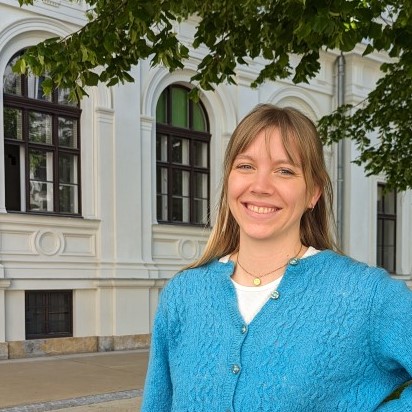Shaping the AI Transformation
The transformative impact of Artificial Intelligence (AI) requires an interdisciplinary approach to understand and shape its impact on societies, organisations and governments. Our research initiative "Shaping the AI Transformation" brings together the expertise of different disciplines to address critical aspects of AI development, regulation and implementation. The initiative focuses on promoting low-code/no-code AI to democratise the development of AI applications while exploring their limitations in terms of quality and transparency.
We examine the economic impact of AI regulation, including frameworks for AI design and certification processes to ensure compliance with evolving legislations, such as the EU AI Act. In addition, the initiative examines AI innovation processes and their intersection with ethical and legal considerations, emphasising the need for robust governance models. Particular attention will be paid to the impact of AI on the working environment, with a focus on collaboration between humans and AI. By addressing topics such as task assignment, trust and augmenting human decision making, we aim to promote a balanced integration of AI into organisational structures. Together, we strive to develop solutions that are socially responsible, legally compliant and economically sustainable, positioning AI as a transformative yet responsible force in modern society.
Goals: Low-code/No-code AI, Economic Aspects of the Regulation of AI, Framework Conditions of AI Design, AI Innovation Processes, AI Certifications, Legal Implementation of AI, EU AI Act, AI and the Work Environment, Human AI Collaboration.
Mission Statement
Research topics that we are currently working on:
- Automated Machine Learning
- Big Data and Data Science
- Data Governance
- Business Analytics
- Low or No Code Development Platforms
- Public Economics and Innovation
- Public Law and Public Commercial Law
- Work and Organisational Psychology
Law

Mag.iur. Magdalena Eder
+43 316 380 - 3608
Institut für Öffentliches Recht und Politikwissenschaft

Dr. LL.M. Markus Fallenböck
+43 316 380 - 1741
Vizerektor für Personal und Digitalisierung
Leiter IDea_Lab
Institut für Öffentliches Recht und Politikwissenschaft
https://www.fallenboeck.com

Univ.-Prof. Mag. Dr.iur. BA BSc Martin Miernicki
+43 316 380 - 3402
Institut für Rechtswissenschaftliche Grundlagen
ORCID: 0000-0003-2672-1087
https://rewi-grundlagen.uni-graz.at/de/ueber-das-institut/recht-und-it/

Univ.-Prof. Dr. Stefan Storr
+43 316 380 - 3382
Institut für Öffentliches Recht und Politikwissenschaft
https://oeffentliches-recht.uni-graz.at/de/arbeitsbereich-univ.-prof.-dr.-stefan-storr/

Mag. Dr.iur. Matthias Zußner
+43 316 380 - 6715
Institut für Öffentliches Recht und Politikwissenschaft
ORCID: 0000-0003-4797-0111
https://online.uni-graz.at/kfu_online/wbforschungsportal.cbshowportal?pPersonNr=82696
Economics

Univ.-Prof. Dipl.-Kfm. Dr.rer.pol. Michael Ehret

MSc Benjamin Gigerl
Center for Data Science in Business and Society (BANDAS)
https://smart-regulation.uni-graz.at/en/research-group-sm-ai-r/

BSc MSc Armin Haberl
+43 316 380 - 7609
Center for Data Science in Business and Society (BANDAS)
Nach Bedarf - Terminvereinbarung per E-Mail

Univ.-Prof. Ph.D Vishal Kashyap

PhD Tong Li

BSc MSc. Anna Polzer
+43 316 380 - 7604
Center for Data Science in Business and Society (BANDAS)
ORCID: 0000-0002-3785-4427

Univ.-Prof. Dr. Andrea Schertler
+43 316 380 - 7302
Institut für Finance
ORCID: 0000-0002-0648-7572
https://homepage.uni-graz.at/de/andrea.schertler/

Univ.-Prof. Dr. Maik T. Schneider

Univ.-Prof. Dr. Stefan Thalmann
+43 316 380 - 7600
Institut für Operations und Information Systems
ORCID: 0000-0001-6529-7958
https://business-analytics.uni-graz.at
Psychology

BSc MSc Simon Grob

Univ.-Prof. Dr.phil. MMag. Bettina Kubicek
+43 316 380 - 8550
Institut für Psychologie
ORCID: 0000-0003-0725-1657
https://psychologie.uni-graz.at/de/arbeits-und-organisationspsychologie/
Computer Science

Univ.-Prof. Dipl.-Ing. Dr.techn. BSc Dominik Kowald
+43 316 380 - 5794
Institut für Digitale Geisteswissenschaften
ORCID: 0000-0003-3230-6234
https://dominikkowald.info